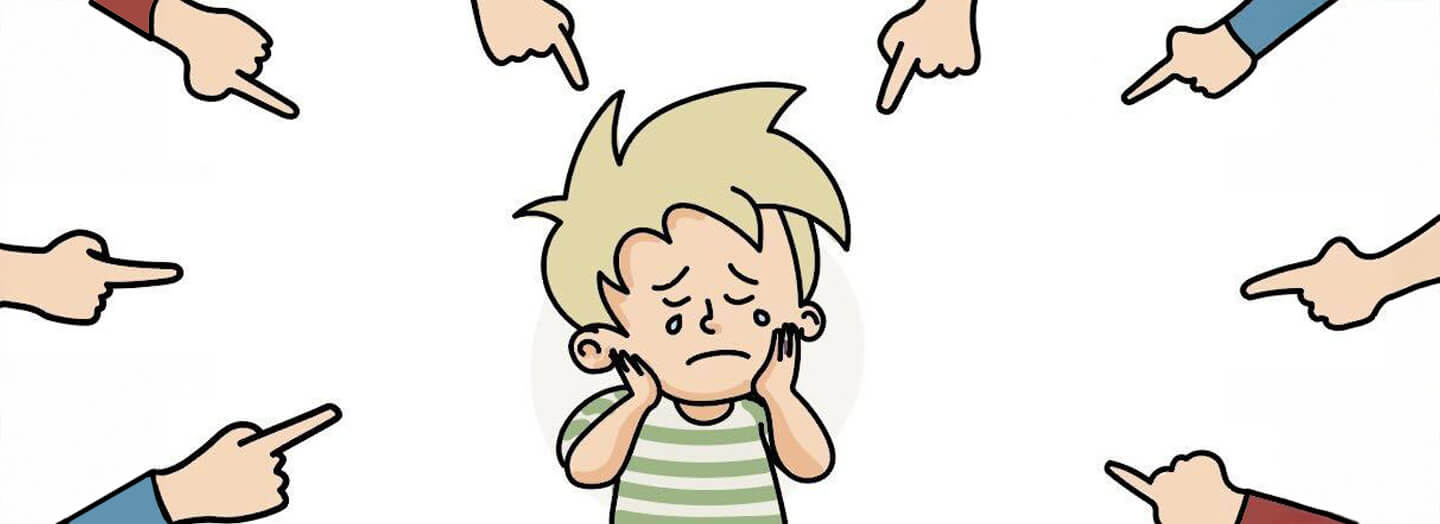"Why do we fall, Bruce? To learn how to get up."— Alfred to Bruce Wayne, in Batman Begins (Christopher Nolan, 2005)
Making mistakes isn't a failure ❌. Making mistakes is an opportunity to learn, grow, test, take risks, and try again 🌱. And yet, as parents, we have serious trouble making room for mistakes (our own and our little ones') because we associate them with suffering, frustration 😣, or even shame and weakness.
 Aware of the damage most of us suffered as children, many mothers and fathers now want to prevent them from making any mistakes 🚫👣, without realizing that, in reality, these mistakes are what build their autonomy, security, and self-confidence 💪.
Aware of the damage most of us suffered as children, many mothers and fathers now want to prevent them from making any mistakes 🚫👣, without realizing that, in reality, these mistakes are what build their autonomy, security, and self-confidence 💪.
In other words: learning to make mistakes is essential not only for development, but for life 🌍. That's why today I want to talk about why it's so important to let them fail, what benefits it has, and how we can support those mistakes in a respectful and loving way ❤️ so they don't experience them badly.
Why is it important to learn to make mistakes in childhood?
If you notice, during the first years of life, children go through what we could call a “stage of constant trial and error” 🔄.
Being able to hold something in one hand and bring it to your mouth takes several attempts 🍽️. Learning to walk comes with several falls and bumps on the head 🤕. Starting to talk is associated with a lot of incorrect words 🗣️. I still remember when one of my children called Pocoyo "Po." Then it became "Pocó." Then it became "Poyó," and finally, it added a third syllable.
The same thing happens when they start socializing, using a spoon 🥄, trying to dress themselves 👕… all of these are learning processes that require many attempts, failures, and new strategies.
If we rush to solve everything for them every time they make a mistake, we are depriving them of the opportunity to experiment and, attention: to get frustrated 😤. 
And yes, it's true. Watching your son or daughter struggle with a shoe 👟 they can't put on, or with a tower of blocks 🧱 that keeps falling over, can cause a pang in our hearts 💔 that tells us, "Oh, poor thing, I'm going to help them." But there's enormous value in that process: the value of discovering their own resources, persevering, and finding the satisfaction of achieving it on their own 🌟.
It's just about finding the balance between "I'll solve your problems instantly" and "Do it yourself, and if you can't do it, you're screwed" (just in case it helps, I used to use the phrase: "You try it. And if after trying a few times you don't get it right, I'll see how I can help you.").
Error as a driving force of learning in childhood 🚀
At school and at home 🏫🏡, we tend to reward correct results: a well-done addition ➕, a sentence without mistakes ✍️, a drawing we like 🎨, a completed homework assignment. And yet, the science of early childhood learning tells us that what matters isn't so much the result, but the effort the child has had to put into the process; and not only that, but mistakes are a more powerful learning engine than success ⚡.

When a child makes a mistake, their brain receives a warning signal that activates new neural connections 🧠. Divergent thinking emerges, and they try to find new ways to achieve the desired goal. Thus, if they have the opportunity to try again, the imprint of that process is recorded, and the learning becomes much more solid 🪨.
That's why it's so important not to ridicule or punish mistakes , but rather to see them as part of the journey 🛤️. A child who learns that they can fail without negative emotional consequences is a child who will dare to explore, innovate, and take bigger steps in their development 🚶✨.
"I didn't fail, I just discovered 999 ways not to make a light bulb."
— Thomas Edison 💡

The weight of our own childhood 🎒
Many times, if not always, the difficulty we have in allowing our children to make mistakes comes from our own history. From those things that were once stuffed into us, or that we stuffed into our backpack of life, and that we still haven't healed. They're still there, and without realizing it, we pass them on to our children, to their backpack.
When we were kids, allow me to generalize, mistakes weren't seen as an opportunity. They were seen as failure 😞. If we got bad grades, our parents would get angry or punish us. If we raised our voices, they accused us of being mean, rude, and ill-mannered, and yes, they punished us too. Some of us were even hit...

They didn't allow us to feel the emotion of anger 😡 so that we could learn to navigate it. They didn't allow us to feel fear either 😨: because if we felt it, it's true that they understood us at first, but when their patience ran out, they invalidated it with phrases like: "Enough already, there's no reason to be afraid." And they didn't allow us to feel sadness either 😢, because if we cried they would tell us "Come on, it's okay," and if we cried even more the message was even harsher: "If you keep crying, I'm going to give you a reason to cry for real."
This breeding ground meant we grew up with serious difficulties when it came to feeling and handling unpleasant emotions, and with a fear of making mistakes. We saw mistakes as something shameful 🙈, as a weakness that had to be hidden, at the risk of angering or upsetting our elders. And of course, as adults, we have a hard time recognizing our own mistakes and asking for forgiveness 🙏, because we were taught that making mistakes was dangerous.
Therefore, accompanying our children with respect today, allowing them to make mistakes, is also an act of reparation . 💞 We not only provide them with a healthier learning experience: we also give ourselves the opportunity to reconcile with our own childhood wounds.
Benefits of letting children make mistakes 🌟
Developing creativity and problem-solving 🎨🧩
Every mistake opens the door to new solutions. If a child goes outside the lines while painting and wants to avoid it, they'll realize they need to slow down as they get closer to the lines in the drawing. If they drop a tower of pieces while building, they'll learn to reposition the base or try different structures.

Greater confidence and self-esteem 💪💖
When a child manages to overcome a challenge after several attempts, the satisfaction is enormous. Not because they did it perfectly, but because they were able to do it alone. That experience of "I can do it" strengthens self-esteem much more than if they had achieved it the first time with help.
Learning to manage frustration 😤➡️😊
Frustration is an inevitable emotion. Not getting what you want the first time can lead to anger, sadness, or rage. And that's okay: learning to recognize and manage these emotions is part of growing up.
If, as adults, we always intervene to prevent children from becoming frustrated, we are depriving them of the opportunity to develop that tolerance. Letting them experience frustration in a safe environment, with our calm presence, helps them develop resilience. There's a phrase I always repeated to myself when I was tempted to immediately lend a helping hand to my children: "You learn to tolerate frustration by becoming frustrated."

Preparing for future challenges 🎯
Making mistakes in childhood is training for life. It prepares them for exams they won't pass perfectly 📚, for job interviews they won't always get the shortlist for 💼, for relationships they'll make mistakes they'll have to try to fix 💔➡️💞.
A child who understands that making mistakes isn't the end, but part of the journey, will face the future with greater strength 🛡️.
How to respectfully support children's mistakes
Validate emotions without judging 😢💬
When your child gets frustrated because they can't achieve something, the first thing to do is validate their feelings: "I can see you're angry because you can't do it." There's no need to correct or minimize (be careful with "It's not that big a deal"), but rather show understanding. This validation is the foundation for them to feel confident even when they make mistakes. 
Value the effort more than the result 🏅
If we only reward successes, children learn that making mistakes is bad. But if we value effort ("I was so glad to see you didn't give up!"), we're teaching them that the important thing isn't perfect performance, but daring and persevering.
Give time and space to try again ⏳
Children need time. They don't learn the first time, or the second time. Sometimes they need ten tries. And sometimes they'll never achieve what they set out to do (or perhaps they'll achieve it in a few years, but not in a few hours or a few days). Even so, our role is to give them that space, even if the rush of everyday life compels us to do it for them.
Yes, it might take you longer to leave the house if you let your child try to dress themselves and put on their shoes 👞. But remember that by doing so, you're allowing them to gain autonomy, self-esteem, and confidence in their abilities 🌟.
Being an example: showing that adults make mistakes too 🙋♀️🙋♂️
Sometimes we think we have to be perfect in front of our children, but showing them that we make mistakes too is very valuable. Saying, "Oops, I made a mistake. I'll try again," teaches them that mistakes aren't something to be ashamed of, but an opportunity to improve.
When error becomes opportunity 🌈
In short: learning that making mistakes is normal isn't a luxury; it's a necessity . Mistakes are what teach us to get back up, to persevere, to trust in ourselves 💡.
As parents, our challenge is to accompany these setbacks with patience, without getting ahead of themselves, without ridiculing, without punishing 🚫. Only then will our children grow up with the certainty that making mistakes doesn't mean failing, but rather continuing to learn 📖.
"Failure is not something to fear, it is simply the opportunity to start over, but more intelligently."
— John Dewey ✍️
So the next time your little one tries something and doesn't succeed, remember: they don't need you to do it for them; they need you there . Their mistake is their journey. And that journey, though full of setbacks 👣, is the one that will take them the furthest 🚀.







